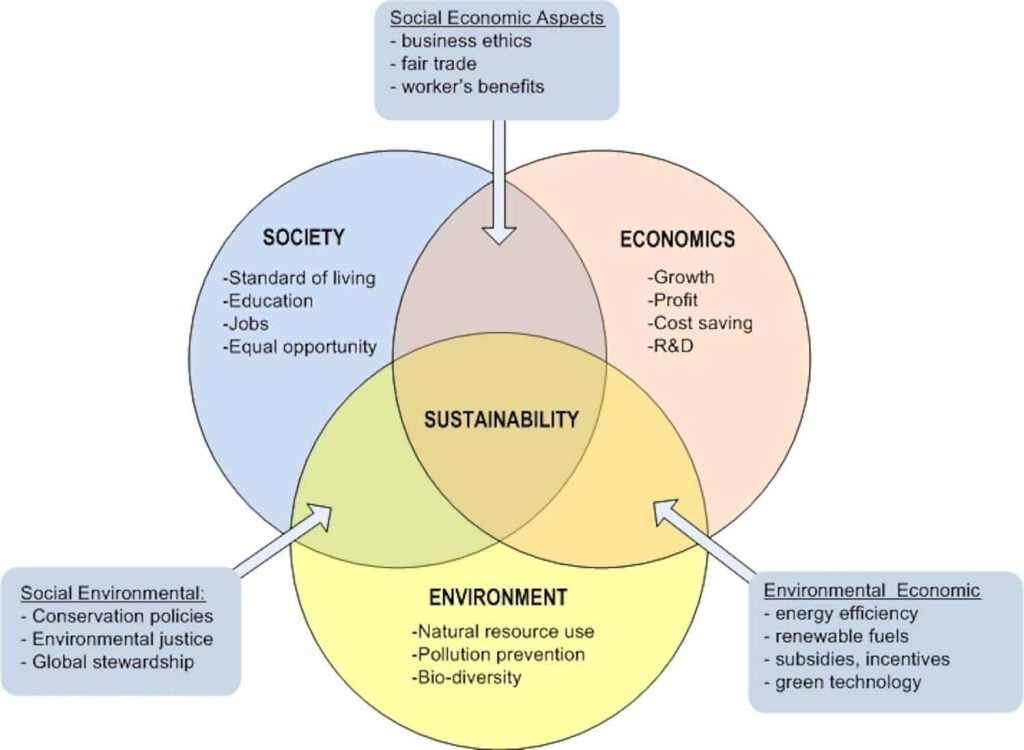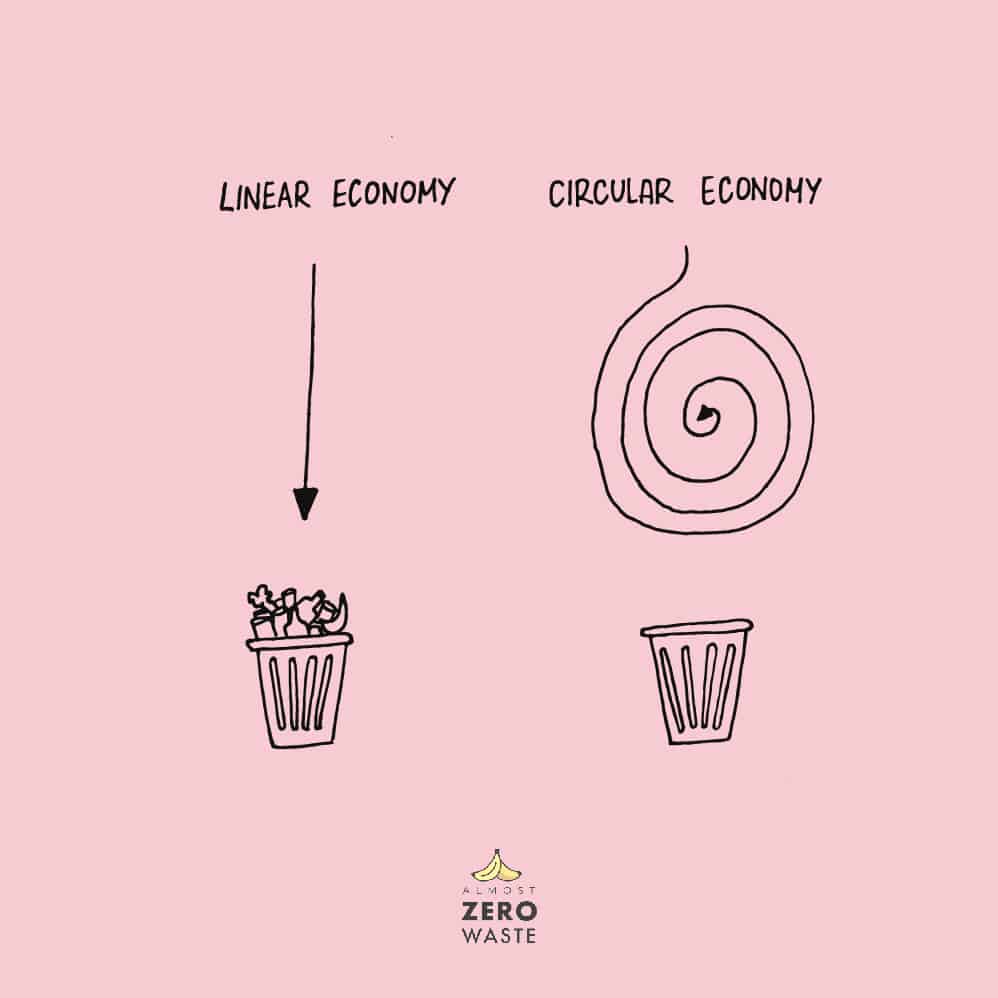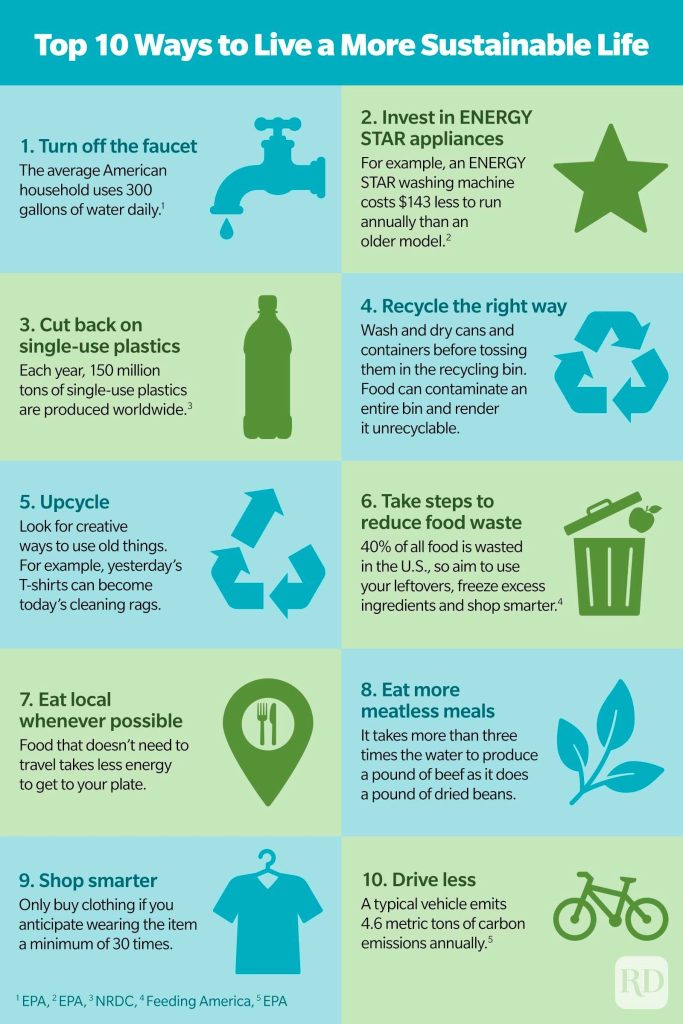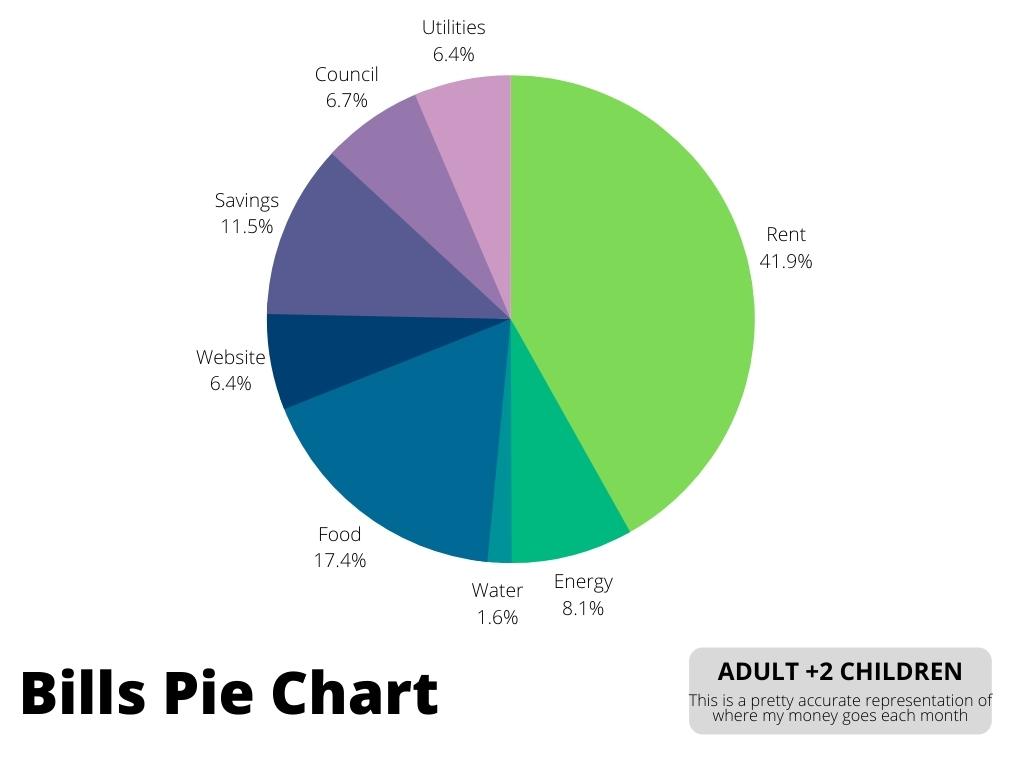Sustainable living, oh boy, where do I even begin? It’s a topic that’s been buzzing around lately, and for good reason! I mean, have you ever stopped and wondered why it’s so important? Well, my friend, you’re in for a treat because we’re about to dive deep into the world of sustainable living and uncover why it’s such a big deal. So grab a cup of coffee, sit back, and let’s explore!
Now, I know what you’re thinking. Why should I care about sustainable living? Well, let me tell you, it’s not just some trendy buzzword. Sustainable living is all about finding ways to meet our needs without compromising the ability of future generations to meet theirs. It’s about creating a balance between our own desires and the well-being of our planet. And let me tell you, that’s no easy feat! But when we embrace sustainable practices, we’re taking a step towards ensuring a better future for ourselves, our children, and the generations to come. So, let’s dig deeper and discover why sustainable living is so important in today’s world.

Why Is Sustainable Living Important?
Sustainable living is becoming increasingly important in today’s world as we face the challenges of climate change, resource depletion, and environmental degradation. It refers to a lifestyle that aims to minimize our negative impact on the planet and preserve natural resources for future generations. Sustainable living encompasses various aspects of our daily lives, including energy consumption, waste management, transportation choices, and food production.
The Environmental Impact
Sustainable living is crucial because it helps mitigate the environmental impact of human activities. By adopting eco-friendly practices, such as reducing energy consumption, conserving water, and minimizing waste, we can significantly reduce our carbon footprint. For example, using energy-efficient appliances, installing solar panels, and using public transportation or cycling can help reduce greenhouse gas emissions. Additionally, sustainable living promotes the preservation of ecosystems and biodiversity by minimizing deforestation, pollution, and habitat destruction.
Benefits of Sustainable Living
There are numerous benefits to embracing sustainable living practices. Firstly, it helps combat climate change by reducing greenhouse gas emissions and promoting the use of renewable energy sources. This can lead to a more stable climate, reduced extreme weather events, and better air quality. Secondly, sustainable living can help protect our natural resources, such as water and forests, ensuring their availability for future generations. By adopting sustainable agricultural practices, we can also protect soil health and promote biodiversity.
Furthermore, sustainable living can have positive social and economic impacts. It promotes healthier lifestyles by encouraging physical activity, reducing exposure to pollutants, and providing access to fresh, locally sourced food. Sustainable practices also create job opportunities in industries such as renewable energy, organic farming, and green construction. By supporting local businesses and communities, sustainable living fosters a sense of belonging and strengthens social cohesion.
Sustainable Living vs. Conventional Living
When comparing sustainable living to conventional living, the differences become evident. Conventional living often prioritizes convenience and immediate gratification, leading to overconsumption and wasteful practices. On the other hand, sustainable living emphasizes long-term thinking and responsible decision-making. It encourages individuals to consider the environmental, social, and economic impacts of their choices.
Reducing Environmental Footprint
One of the significant contrasts between sustainable living and conventional living is the focus on reducing environmental footprints. Sustainable living promotes energy conservation, recycling, and using eco-friendly products, while conventional living may involve excessive energy use, single-use plastics, and wasteful consumption patterns. By adopting sustainable practices, individuals can significantly reduce their negative impact on the environment.
Moreover, sustainable living encourages conscious choices regarding transportation. While conventional living often relies heavily on personal vehicles, sustainable living emphasizes the use of public transportation, carpooling, and cycling. These alternative modes of transportation reduce carbon emissions, alleviate traffic congestion, and improve air quality.
Tips for Embracing Sustainable Living
Embracing sustainable living may seem daunting at first, but small changes in our daily routines can make a significant difference. Here are some tips to help you get started:
1. Reduce energy consumption by turning off lights and appliances when not in use, using energy-efficient light bulbs, and adjusting thermostat settings.
2. Minimize water consumption by fixing leaks, taking shorter showers, and using water-saving appliances.
3. Practice waste reduction by recycling, composting organic waste, and avoiding single-use plastics.
4. Support local and organic food producers by shopping at farmers’ markets and choosing seasonal, locally sourced produce.
5. Use eco-friendly transportation options such as walking, cycling, or using public transportation whenever possible.
6. Educate yourself and others about sustainable living practices to create awareness and inspire positive change.
By incorporating these tips into your lifestyle, you can be part of the solution in creating a more sustainable future.
The Importance of Education and Advocacy
Education and advocacy play a crucial role in promoting sustainable living. By raising awareness about the benefits of sustainable practices, we can inspire individuals, communities, and policymakers to take action. Education can take the form of school programs, community workshops, and online resources that provide information on sustainable living and its positive impacts.
Advocacy involves actively supporting policies and initiatives that promote sustainability. This can include participating in environmental campaigns, joining local sustainability organizations, and engaging with elected representatives to voice your concerns and support sustainable policies. Through education and advocacy, we can create a collective movement towards a more sustainable and environmentally conscious society.
In conclusion, sustainable living is essential for the well-being of our planet and future generations. By adopting eco-friendly practices, reducing our environmental footprint, and promoting responsible decision-making, we can contribute to a more sustainable and resilient world. Embracing sustainable living is not only beneficial for the environment but also for our health, economy, and overall quality of life. Let’s take action now and make sustainable living a priority in our daily lives.
Key Takeaways: Why Is Sustainable Living Important?
- Sustainable living helps protect the environment and conserve natural resources.
- It reduces pollution and promotes cleaner air and water.
- Sustainable living supports biodiversity and protects endangered species.
- It promotes healthier lifestyles by encouraging organic and local food choices.
- Sustainable living helps combat climate change and reduce greenhouse gas emissions.
Frequently Asked Questions
What is sustainable living?
Sustainable living refers to a lifestyle that aims to reduce an individual’s or community’s impact on the environment and preserve natural resources for future generations. It involves making conscious choices in our daily lives to minimize waste, conserve energy, and promote ecological harmony.
By adopting sustainable practices, we can create a balance between meeting our needs and protecting the planet. This includes actions such as recycling, using renewable energy sources, reducing water consumption, and supporting local and organic food production.
How does sustainable living benefit the environment?
Sustainable living plays a crucial role in safeguarding the environment. By reducing our carbon footprint, we can mitigate the effects of climate change, preserve biodiversity, and protect natural habitats. When we embrace sustainable practices, we contribute to the conservation of resources like water, energy, and forests, reducing the overall strain on the planet.
Additionally, sustainable living promotes the use of clean and renewable energy sources, reducing our reliance on fossil fuels and decreasing air and water pollution. By choosing eco-friendly alternatives and adopting sustainable habits, we can help create a healthier and more sustainable environment for future generations.
Does sustainable living save money?
Contrary to popular belief, sustainable living can actually help save money in the long run. By adopting energy-efficient practices and appliances, we can reduce our electricity bills significantly. For example, using LED light bulbs and turning off appliances when not in use can lead to substantial energy savings.
Furthermore, sustainable living encourages minimalism and conscious consumption. By buying only what we need and making use of second-hand items, we can save money and reduce our impact on the environment. Growing our own food or supporting local farmers can also help cut down on grocery expenses while promoting sustainable agriculture.
How does sustainable living impact our health?
Sustainable living has a positive impact on our health and well-being. By choosing organic and locally sourced food, we reduce our exposure to harmful pesticides and support sustainable farming practices. Eating a diet rich in fresh produce and whole foods can improve our overall health and reduce the risk of chronic diseases.
In addition, sustainable living often involves engaging in physical activities such as cycling or walking instead of relying on cars. Regular exercise not only improves cardiovascular health but also reduces air pollution and congestion in urban areas. By prioritizing our health and the health of the planet, we can lead more fulfilling and sustainable lives.
How can I start living sustainably?
Embarking on a sustainable living journey is a gradual process that starts with small changes. Here are some simple steps to get started:
1. Reduce waste: Practice recycling, composting, and reusing items instead of throwing them away.
2. Conserve energy: Turn off lights when not in use, use energy-efficient appliances, and consider installing solar panels.
3. Save water: Fix leaks, take shorter showers, and collect rainwater for gardening.
4. Choose sustainable transportation: Opt for walking, cycling, or public transport whenever possible.
5. Support local and organic: Buy locally sourced and organic products to support sustainable farming practices.
Remember, sustainable living is a journey, and every small step counts towards creating a more sustainable future.
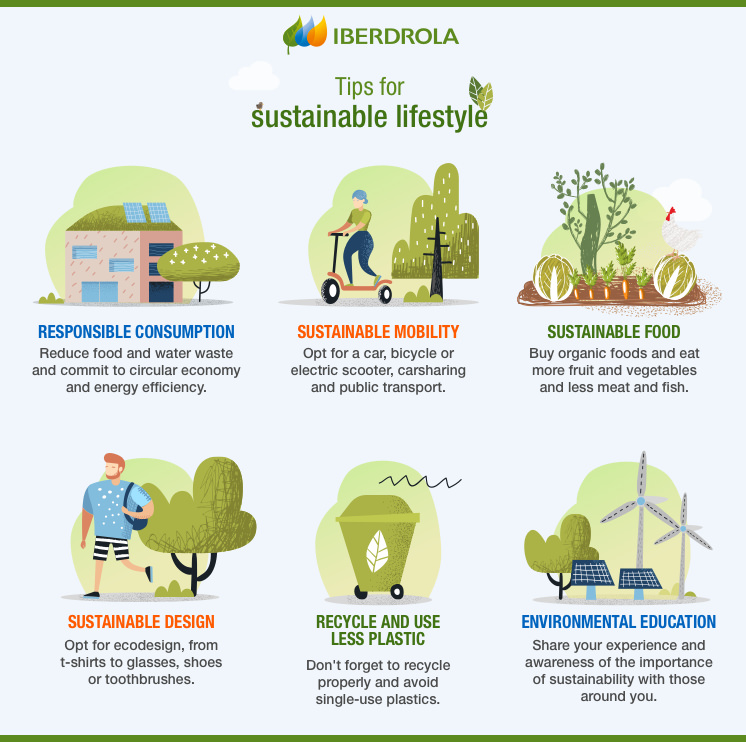
Sustainability in everyday life | Sustainability
Final Thoughts: Why Sustainable Living Matters
As we reach the end of this discussion, it becomes clear that sustainable living is not just a passing trend, but a vital aspect of our future. The importance of embracing sustainable practices cannot be overstated. From reducing our carbon footprint to preserving natural resources, sustainable living offers a multitude of benefits that extend far beyond our immediate surroundings.
By adopting sustainable habits, we contribute to the well-being of our planet and future generations. We have the power to make a positive impact through small changes in our daily lives. Whether it’s conserving energy, practicing mindful consumption, or supporting eco-friendly initiatives, every action matters. Together, we can create a more sustainable world for ourselves and the generations to come.
In conclusion, sustainable living is not just an idealistic concept; it is a necessary pathway for a brighter future. Let us take inspiration from the numerous individuals and organizations already championing sustainability, and join them in their pursuit of a greener and more harmonious world. Remember, the choices we make today shape the world we will inhabit tomorrow. So, let’s embrace sustainable living as a collective responsibility and work towards a sustainable future for all.


